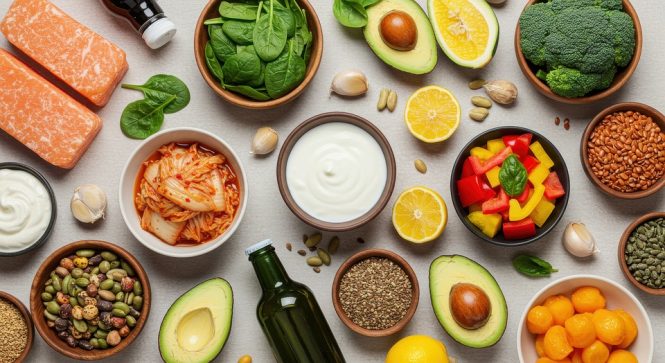
Nourish Your Body: The Ultimate Guide to a Balanced Diet Plan
In today’s fast-paced world, it’s easy to get caught up in unhealthy eating habits. With the constant availability of processed and convenience foods, it can be challenging to maintain a balanced diet. However, a well-planned diet is essential for maintaining overall health and wellbeing. In this article, we’ll explore the importance of a balanced diet and provide a comprehensive guide to help you nourish your body.
Why is a Balanced Diet Important?
A balanced diet provides your body with the necessary nutrients, vitamins, and minerals to function properly. It helps to:
- Maintain a healthy weight: A balanced diet ensures that you’re getting the right amount of calories to support your weight management goals.
- Boost energy levels: A diet rich in whole foods provides sustained energy and helps to prevent fatigue.
- Support immune function: A balanced diet helps to support immune function, reducing the risk of illnesses and infections.
- Promote healthy skin, hair, and nails: A diet rich in vitamins and minerals helps to maintain healthy skin, hair, and nails.
- Reduce the risk of chronic diseases: A balanced diet can help to reduce the risk of chronic diseases, such as heart disease, diabetes, and certain types of cancer.
The Key Components of a Balanced Diet
A balanced diet should include a variety of foods from all food groups. The key components of a balanced diet are:
- Fruits and vegetables: Aim for at least 5 servings a day, including a variety of colors to ensure you’re getting a range of vitamins and minerals.
- Whole grains: Include whole grains, such as brown rice, quinoa, and whole wheat bread, in your diet to provide fiber, vitamins, and minerals.
- Protein sources: Include a variety of protein sources, such as lean meats, fish, eggs, dairy, and plant-based options, to support muscle growth and repair.
- Healthy fats: Include healthy fats, such as nuts, seeds, avocados, and olive oil, in your diet to support heart health and provide sustained energy.
- Dairy or calcium-rich foods: Include dairy or calcium-rich foods, such as milk, cheese, and leafy greens, to support bone health.
Tips for Creating a Balanced Diet Plan
- Keep a food diary: Record your food intake to identify areas for improvement and track your progress.
- Plan your meals: Take time to plan your meals for the week, including breakfast, lunch, dinner, and snacks.
- Shop smart: Make a grocery list and stick to it, avoiding processed and convenience foods.
- Cook at home: Aim to cook at home most nights, using fresh ingredients and healthy cooking methods.
- Stay hydrated: Drink plenty of water throughout the day, aiming for at least 8 cups (64 ounces) daily.
Sample Meal Plan
Here’s a sample meal plan to get you started:
- Breakfast: Overnight oats with fruit and nuts, or scrambled eggs with whole grain toast and avocado
- Lunch: Grilled chicken salad with mixed greens, vegetables, and a whole grain wrap, or a bowl of lentil soup with whole grain bread
- Dinner: Grilled salmon with roasted vegetables and quinoa, or a stir-fry with lean beef, mixed vegetables, and brown rice
- Snacks: Fresh fruit and nuts, carrot sticks with hummus, or a handful of trail mix
Common Diet Mistakes to Avoid
- Restrictive eating: Avoid severely restricting your diet, as this can lead to nutrient deficiencies and disordered eating.
- Overeating: Be mindful of portion sizes and avoid overeating, as this can lead to weight gain and other health problems.
- Skipping meals: Avoid skipping meals, as this can lead to low energy and poor nutrient intake.
- Relying on supplements: While supplements can be helpful, they should not replace a balanced diet. Focus on getting nutrients from whole foods.
Conclusion
A balanced diet is essential for maintaining overall health and wellbeing. By including a variety of foods from all food groups and following the tips outlined in this article, you can create a personalized diet plan that nourishes your body. Remember to stay hydrated, cook at home, and avoid common diet mistakes to ensure you’re getting the most out of your diet. With a little planning and dedication, you can achieve a balanced diet and enjoy the many benefits that come with it.